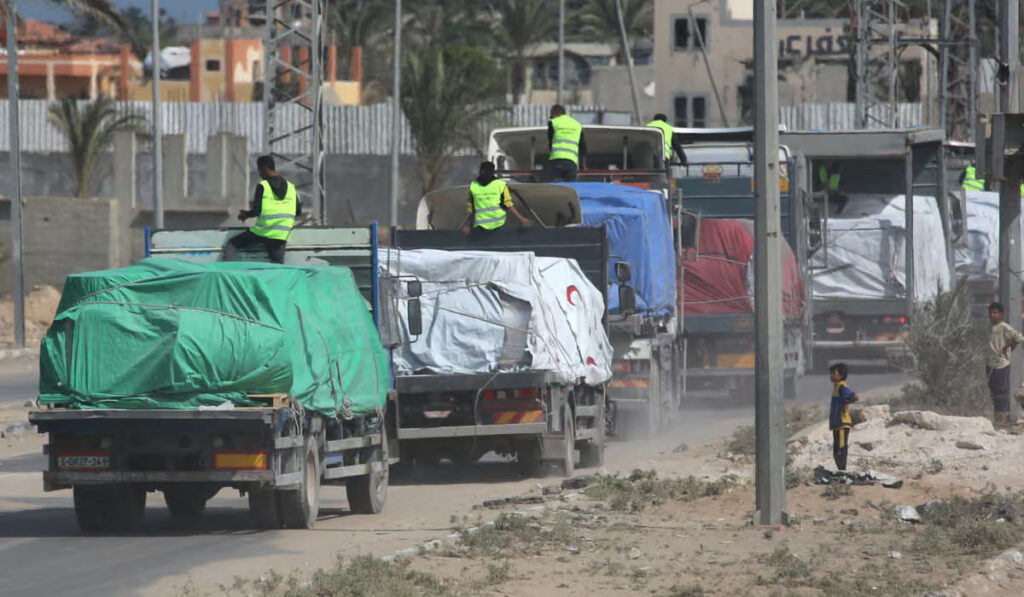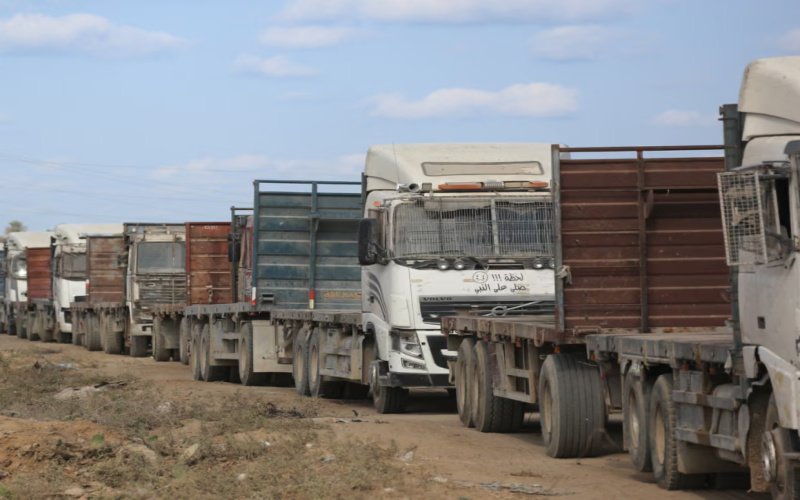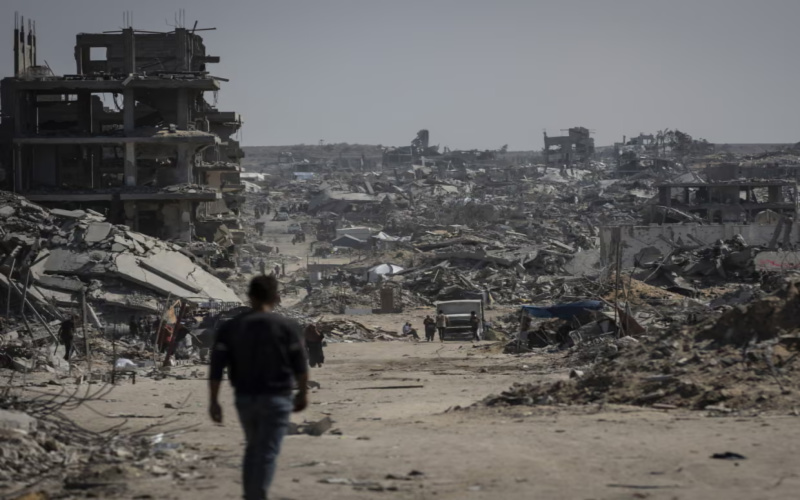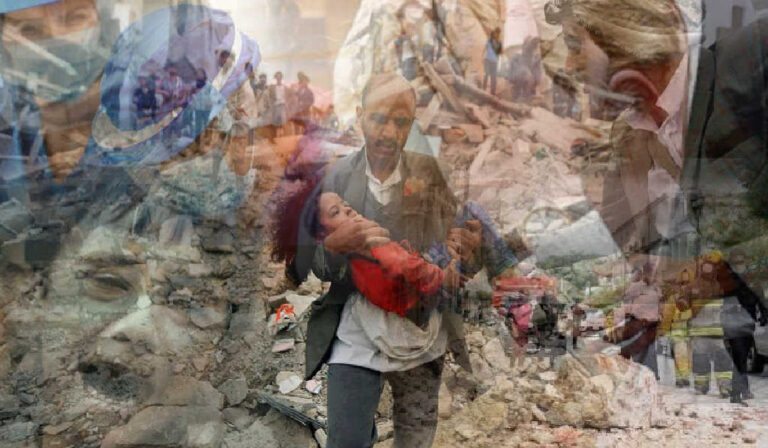
Gaza aid remains critically short as convoys stall at crossings
Humanitarian agencies report severe shortages in Gaza a week into the ceasefire, with delays to food convoys deepening hunger. Israeli officials and Hamas accuse each other of breaching the truce, while people wait for supplies that do not arrive in the promised numbers.
The UN World Food Programme says its teams have delivered an average of about 560 tonnes of food a day since the pause in fighting began, still far below need. Abeer Etefa, speaking for the agency, said the ceasefire had created a narrow window to scale up, yet access and logistics continue to hold back operations.
Long queues at Kissufim as trucks sit idle

Aid lorries have lined up for hours at the Kissufim crossing, one of the few points where trucks load on the Israeli side before returning into Gaza. Drivers often wait under harsh heat for clearance. Around 600 trucks should enter each day, according to agreed targets, but fewer than half are getting through. Strict controls on cargo are forcing some convoys to turn back, wasting precious time and fuel, and keeping warehouses near-empty.
Deadly strike near the ceasefire line
Amid delays, Israeli fire has continued inside the strip. In Gaza City’s Zeytoun area, an Israeli strike hit a car that had moved past what the army calls the yellow line, killing nine people. Mahmoud Basal from Gaza’s civil defence said the family could not have told the difference between the yellow and red lines, since there are no visible markers. Israel’s defence minister, Israel Katz, said the yellow line will soon be marked on the ground.
Food aid scales up, but the north is cut off
WFP says five official distribution points are operating, with a plan to expand to 145 to push large volumes of food into the territory. Even so, Gaza City remains out of reach. Two northern crossings, Zikim and Erez, stay shut, blocking direct access to the areas with the worst shortages.
Etefa said damaged roads and debris are hindering the movement of wheat flour and ready-to-eat parcels from the south to the north. Only small quantities have made it into northern districts. Most convoys cannot carry significant loads through shattered streets.

On Thursday, 57 trucks entered southern and central Gaza. Etefa called this a breakthrough, but still short of the 80 to 100 trucks a day the agency says are needed now, with much higher levels required over time.
Famine will take time to reverse
UN officials say the famine that spread during the war will not ease quickly. Israel’s closure of crossings during the fighting blocked food and medicine, leaving parts of Gaza without basic supplies. The UN is urging that all crossing points open to speed up deliveries and stabilise supply lines.
Tens of thousands of tonnes of aid are staged in Jordan and Egypt, waiting for entry. Under the first phase of the ceasefire deal, shipments were expected to surge. Relief groups prepared for a major push over the weekend, but the bottlenecks remain and the flow is far below need.
Disease outbreak warning from WHO
The World Health Organisation (WHO) warns that infectious diseases are spiralling out of control. Only 13 of 36 hospitals are functioning even partially. Hanan Balkhy, the regional director for the UN health agency, said teams face huge pressure amid outbreaks of meningitis, diarrhoea, and respiratory illnesses.
WHO’s office for the occupied Palestinian territory says it has increased deliveries of medical supplies since the ceasefire began. Doctors, nurses, and volunteers are working with limited power, scarce clean water, and damaged clinics.
Truce under strain as accusations mount
The fragile deal between Israel and Hamas is already strained. Israel says Hamas violated the terms by failing to return the remains of all deceased hostages. Hamas says it has handed back nine of 28 bodies recovered so far and argues that heavy machinery is needed to reach others still under collapsed buildings.
Turkey has sent disaster response specialists to assist in searching through ruins. Gaza’s civil defence estimates that around 10,000 bodies remain trapped under debris, with about 60 million tonnes of rubble covering large parts of the territory. The scale of recovery is overwhelming for local crews, even with outside help.
Washington signals a hard line
U.S. President Donald Trump said he would consider allowing Israeli troops to resume operations in Gaza if the militant group failed to honour a ceasefire. In a short phone call with a US broadcaster, he said Israel would be back on the streets as soon as he gave the word, adding that if the military were allowed to hit hard, they would do so.







